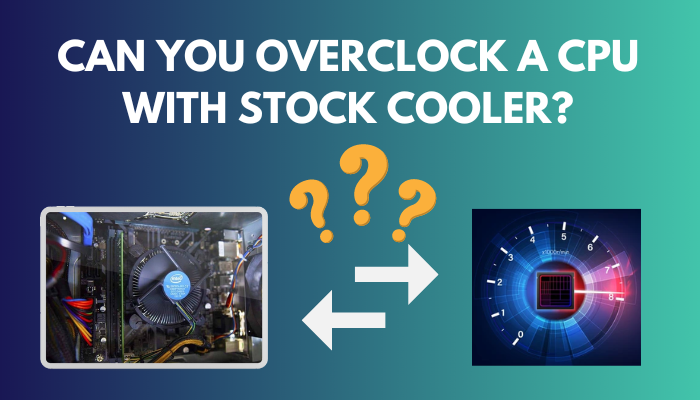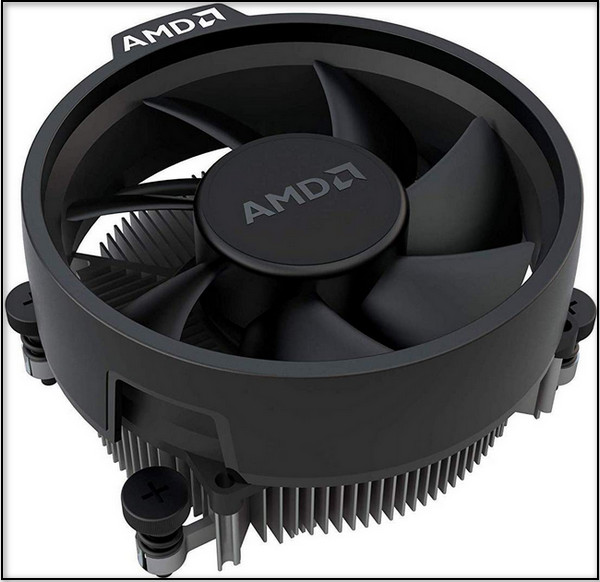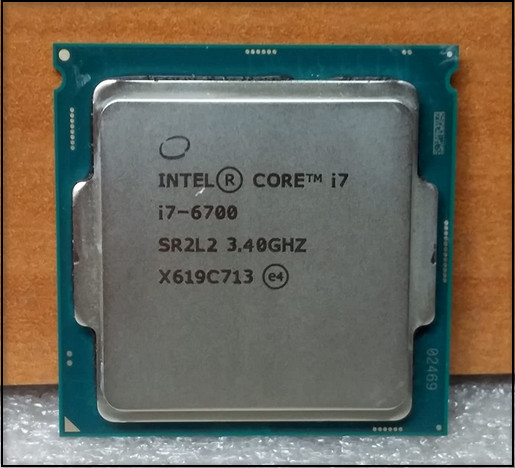Overclocking the CPU effectively squeezes some extra performance out of your rig without spending money to upgrade the hardware.
But one question that comes to mind when overclocking the CPU with the stock cooler is whether it’s a good idea or a fire hazard. And if I can OC with a stock cooler, how far can I push the CPU frequency?
If you’re also asking yourself the same questions, you’ve come to the right place. Let’s dive into this article & find all the answers, shall we?
You may also like to read about how to find out what CPU cooler i have?
Can I Overclock My CPU with the Stock Cooler?
To be blunt, yes, you can overclock the CPU with its stock cooler. But you won’t be able to fully utilize the overclocking potential of the chip as you’ll hit the thermal limit long before you reach the maximum frequency. Also, it’s not recommended as it will reduce the lifespan of the CPU.
Now for a more elaborate answer, it depends on a few things, such as the quality of the stock cooler, your CPU type, case ventilation, ambient temperature etc.
If you are using a power-efficient CPU, such as Ryzen 5 3600, you can OC the CPU with its stock cooler without worrying much. On the other hand, if you are using a hot block, such as the Intel core i7 10700 with its stock cooler, I wouldn’t recommend doing any overclocking on it.
There’s a reason why Intel K series(unlocked multiplier, overclockable) CPUs don’t come with a stock cooler. Up until the 11th gen, Intel’s CPUs get pretty toasty under heavy load. So don’t even think about doing any OC with the stock coolers, as those coolers are also very mediocre.
Furthermore, if you don’t have good ventilation for the PC case or living in a room with a high ambient temperature, your CPU will hit the thermal threshold much quicker with a stock cooler. In such cases, you might have to go for an AIO or liquid cooler.
Check out our separate post to know do you need a CPU cooler?
How Far Can I Overclock My CPU on Stock Cooler?
To be honest, it mostly depends on your CPU model & the quality of the stock cooler. I was able to get 4.3GHz stable on 1.26V with my Ryzen 5 3600+stock cooler setup. Your mileage may vary depending on the ambient temperature, silicon lottery and the CPU model.
Usually, you shouldn’t increase the multiplier too much when using the stock cooler. You should only increase the CPU frequency up to 80-100MHz, no more. Even if you get a stable performance on a higher frequency, you shouldn’t push the CPU too much.
One easy way to see how far you can overclock your CPU on a stock cooler is to google it. Suppose you are using an i7-6700(non-K); search on google for Intel i7-6700 overclocking limit.
Related contents you should read: how long do AIO coolers last, how to know if CPU cooler is compatible with motherboard, can I start a PC without a CPU cooler.
Frequently Asked Questions
Is stock cooler enough for overclocking?
For the most part, yes. The stock cooler is fine for moderate overclocking. Still, you won’t be able to get the maximum overclocking performance out of your system if you don’t buy an aftermarket tower-style cooler.
Is the Intel stock cooler good for extreme overclocking?
No. The stock cooler is enough to run on the default multiplier without throttling, but you should buy an aftermarket cooler if you’re willing to do extreme overclocking.
Is water cooling better for overclocking?
Yes. Water/liquid cooling is much better than air cooling if you want to push the CPU to its limits via overclocking.
Conclusion
Regarding CPU overclocking, buying an AIO or a good aftermarket cooler is always recommended. But that doesn’t mean you can’t up the multiplier a bit to get some extra juice out of your desktop if you have settled with the stock cooler. But be humble about it.
That’s all for today. Hope this write-up has provided you with the answers you were looking for. If you have any further queries, let us know in the comment section below.
Adios!